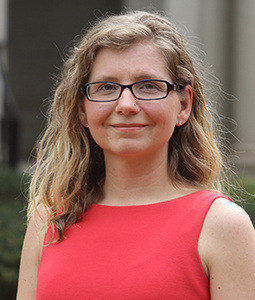Department of Women’s and Gender Studies
- SC.edu
- Study
- Colleges and Schools
- Arts and Sciences
- Department of Women’s and Gender Studies
- Our People
- Tia Stevens Andersen
Our People
Tia Stevens Andersen
| Title: | Associate Professor |
| McCausland College of Arts and Sciences | |
| Email: | tstevens@mailbox.sc.edu |
| Phone: | 803-777-3495 |
| Office: | Close-Hipp Building, Room 504 |
| Resources: | Curriculum Vitae [pdf] Google Scholar |

Education
- Ph.D. 2013, Michigan State University, Criminal justice
- M.A. 2006, Bowling Green State University, Sociology
- B.A. 2004, Oakland University, Sociology
Specialization
- Mentoring to Disrupt the School-to-Prison Pipeline
- Resilience and Positive Youth Development
- Trauma, Victimization, and Protective Factors for Youth
- Qualitative and Mixed Methodologies
- Gendered Pathways into Delinquency and Alternative Schooling
- Service and Experiential Learning
- Racial, Gender, and Intersectional Inequalities in Juvenile Justice
Bio
Dr. Tia Stevens Andersen holds a joint appointment in Women’s and Gender Studies and Criminology and Criminal Justice. She uses qualitative and mixed methods to study how exclusionary school discipline, juvenile justice policies, and structural inequality shape the lives of young people, especially those removed from traditional educational settings. Grounded in feminist criminology and intersectional frameworks, her research examines how gender, race, trauma, and place influence pathways into alternative schools and justice system involvement. She also investigates how supportive relationships, like mentoring, can disrupt the school-to-prison pipeline and foster resilience.
Her current research, funded by the National Science Foundation, is a multi-year study following cohorts of expelled youth over time. The project explores long-term patterns in positive youth development and risk behavior, with a focus on identifying protective factors and strengths. Additional studies examine how trauma, victimization, and inequality shape girls’ pathways into alternative schools, how youth cope with school exclusion, and how the media constructs narratives about violent girls. In addition to her research, Andersen directs a university-community mentoring program that matches college students with youth in a disciplinary alternative school, integrating research, teaching, and practice in the service of social change. Her work has been published in Feminist Criminology, Children and Youth Services Review, Journal of Community Psychology, Journal of Youth Development, Crime & Delinquency, Journal of Family Violence, and other interdisciplinary journals.